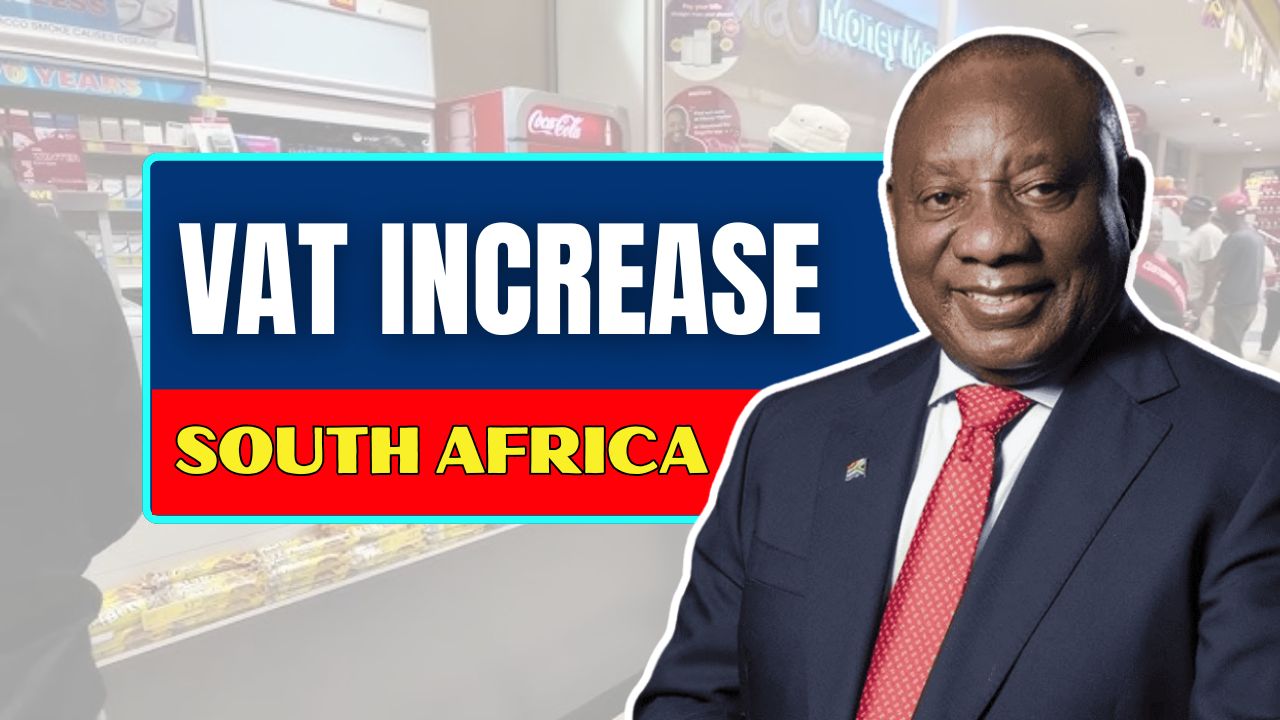In recent months, South Africa has witnessed a significant economic development that has sparked heated discussions throughout the country: the government’s decision to increase the value-added tax (VAT) rate. With the VAT rate rising from 14% to 15%, this move has triggered a wide range of responses from economists, businesses, and everyday South Africans.
The hike, which was implemented to boost government revenue amidst the nation’s economic struggles, has sparked a debate over its potential benefits and drawbacks, especially in light of the challenges many citizens already face.
Understanding the VAT Increase
VAT is a consumption tax levied on goods and services, and its increase has a direct impact on the cost of living. The government’s decision to raise VAT by 1% is part of a broader set of fiscal policies aimed at stabilizing the country’s finances.
While this move is expected to generate much-needed revenue, it also raises the question of whether it will worsen the burden on an already financially strained population. With inflation rates rising and unemployment continuing to plague the country, the impact of the VAT increase on ordinary South Africans cannot be understated.
Economic Implications of the VAT Hike
Economists have been quick to point out both the potential benefits and drawbacks of the VAT hike. On the one hand, the additional revenue generated could help address the country’s deficit, reduce national debt, and fund vital public services.
This, in turn, could help the government maintain its credit rating and attract foreign investment, potentially stimulating economic growth in the long term. On the other hand, critics argue that the hike places an undue burden on the lower-income segments of society.
VAT is considered a regressive tax, meaning it disproportionately affects those with lower incomes, as they spend a higher percentage of their earnings on taxed goods and services. With South Africa already grappling with high levels of poverty and inequality, there are concerns that the VAT increase could exacerbate these issues.
Impact on Businesses
For businesses, the VAT increase presents a challenge, particularly for small and medium enterprises (SMEs). While large corporations may be able to absorb some of the increased costs, SMEs with tighter profit margins are more likely to pass on the price hike to consumers.
This could further reduce demand for goods and services, leading to lower sales and potential job losses. Moreover, businesses may face increased administrative costs as they adjust their pricing structures and accounting systems to accommodate the new VAT rate.
Conversely, some sectors could see an uptick in activity as a result of the VAT increase. For instance, businesses that supply essential goods and services may not feel the full impact of the tax hike, as consumers will still need to purchase these items regardless of price changes. However, the overall effect on the broader business landscape is expected to be mixed, with certain industries bearing the brunt of the impact.
Reactions from South African Citizens
The public reaction to the VAT hike has been divided. Many South Africans are concerned about the rising cost of living and the strain that the additional tax will place on their household budgets. With inflation already driving up the prices of food, transport, and other essential goods, the VAT increase is seen as another obstacle for those struggling to make ends meet.
At the same time, some citizens understand the need for the hike, particularly if it can lead to improvements in public services such as healthcare and education. Supporters of the VAT increase argue that it is a necessary step for the country’s fiscal health and that the long-term benefits will outweigh the short-term discomfort.
The Role of Government Support Measures
In response to the public’s concerns, the government has introduced various measures to mitigate the impact of the VAT increase on vulnerable populations. This includes targeted social assistance programs and food relief efforts aimed at cushioning the effects of rising prices. While these measures are welcomed, many believe they are insufficient given the scale of the challenges faced by low-income households.
The government’s ability to balance its fiscal needs with the social pressures on its citizens will be key to determining whether the VAT hike proves to be a successful policy. If the revenue generated is effectively used to address structural issues in the economy, it could help lay the foundation for a more stable and prosperous future.
The Road Ahead
The VAT increase marks a significant moment in South Africa’s economic trajectory. Whether it ultimately proves to be a necessary sacrifice for the greater good or a policy that exacerbates inequality will depend largely on how the government manages the revenue it generates and the broader economic environment.
The ongoing debate highlights the complex nature of fiscal policy and the need for careful consideration of both short-term and long-term consequences.
As the situation continues to evolve, it will be crucial to monitor the effects of the VAT hike on inflation, consumer spending, business activity, and social welfare. Only time will tell whether the decision will lead to greater economic stability or further strain the country’s fragile socio-economic fabric.




